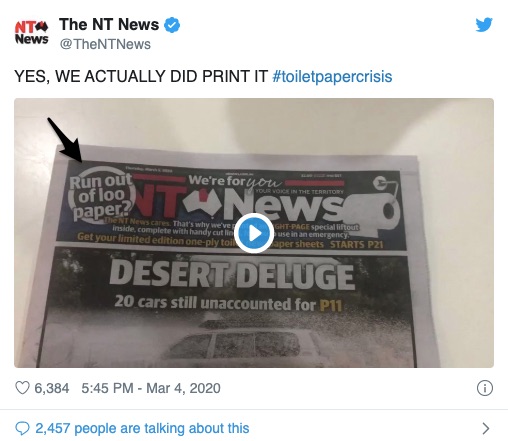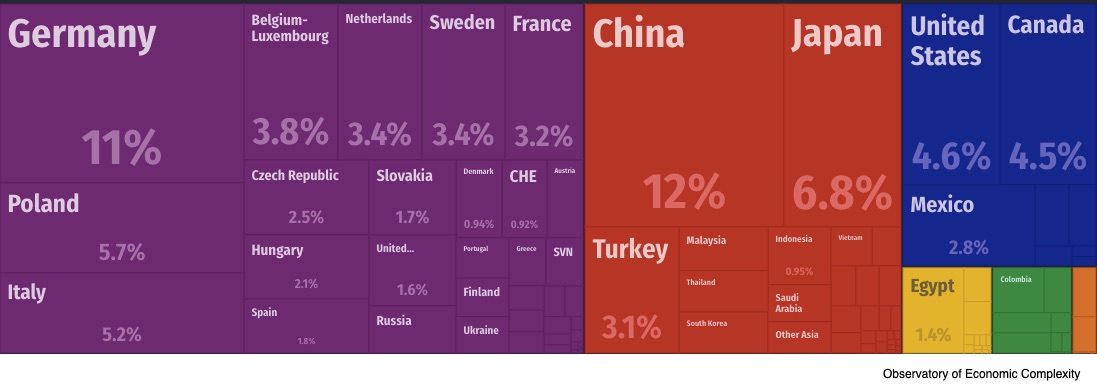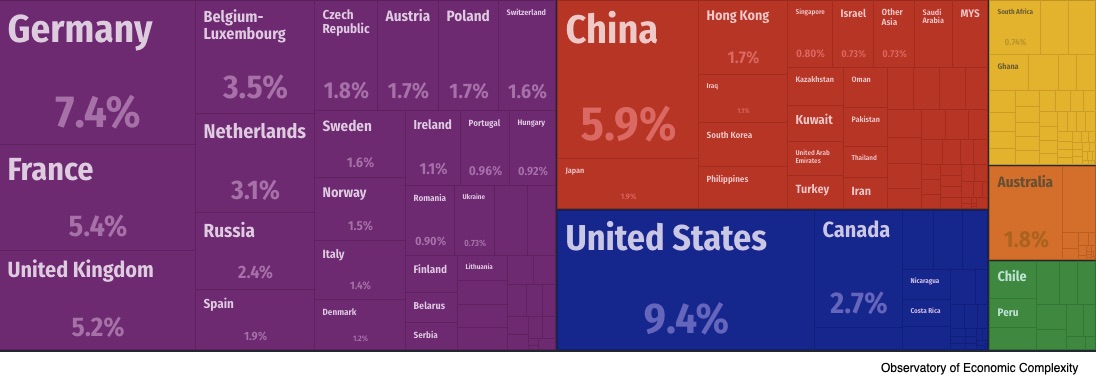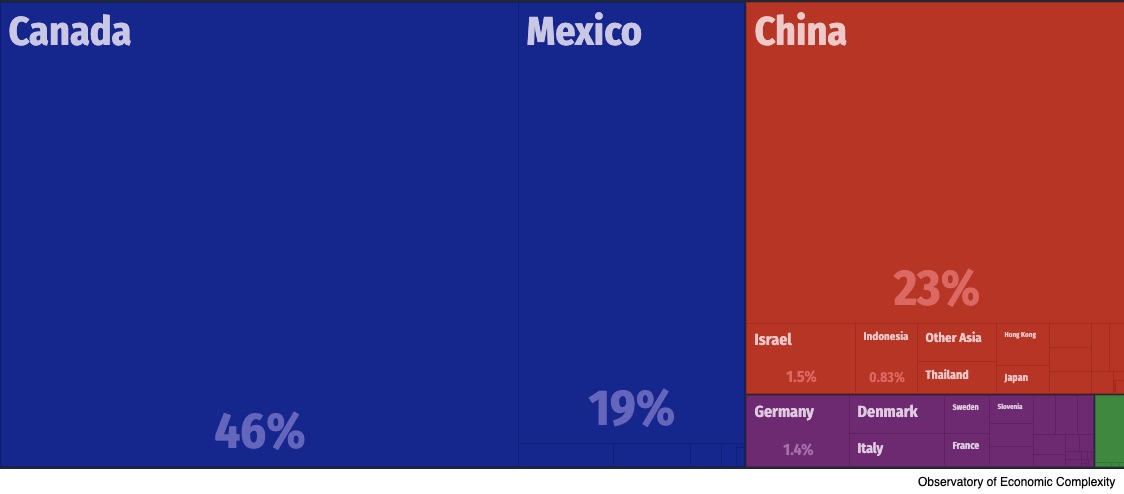In Australia, a newspaper printed an eight-page lift-out blank section. As they explained, “Run out of loo paper? The NT News cares.”
Below, you can see NT’s front page. I added the arrow:
Far beyond Australia, at my local New Jersey ShopRite supermarket, the toilet paper shelves were empty.
Toilet Paper Shortages
Asked about the toilet paper run in Hong Kong, manufacturers said there was no supply problem. Instead, it’s the excessive buying.
This February 14 picture from a Hong Kong supermarket says it all:
So too do these bare toilet paper shelves in this Melbourne supermarket:
But why toilet paper? CNN shared what psychologists are saying:
- People are not sure how to prepare for a coronavirus outbreak. Through toilet paper, we can feel we are doing something. Stockpiling can generate a sense of control.
- Washing hands can feel inadequate. When the situation is extreme, some of us need an equally dramatic response. Maybe it’s stockpiling toilet paper.
- By skyrocketing demand, we create the very shortages we are trying to avoid. Like a run on a bank that soon fails (you know the long lines during the Great Depression), responding to your worry about toilet paper shortages, you are making them happen.
So, what should we conclude? I suspect that the toilet paper shortage is not a supply problem.
Our Bottom Line: Globalization
Thinking of supply, let’s see where our toilet paper might have come from. The Observatory of Economic Complexity has summary statistics on the toilet paper trade (2017).
At 12 percent, China is the world’s largest exporter of toilet paper:
Meanwhile, the U.S. is the biggest importer of toilet paper:
And Canada sends us almost half of our toilet paper imports:
Where does this leave us? Toilet paper is very much a part of the world economy.
My sources and more: The media is talking about shortages. Articles from WSJ, CNN, and Business Insider are only some of the possibilities. And finally, it is always fun to look at the Observatory of Economic Complexity.













interesting article